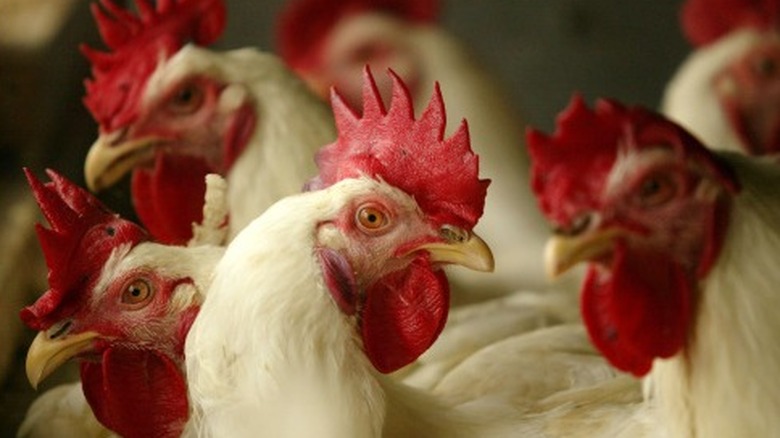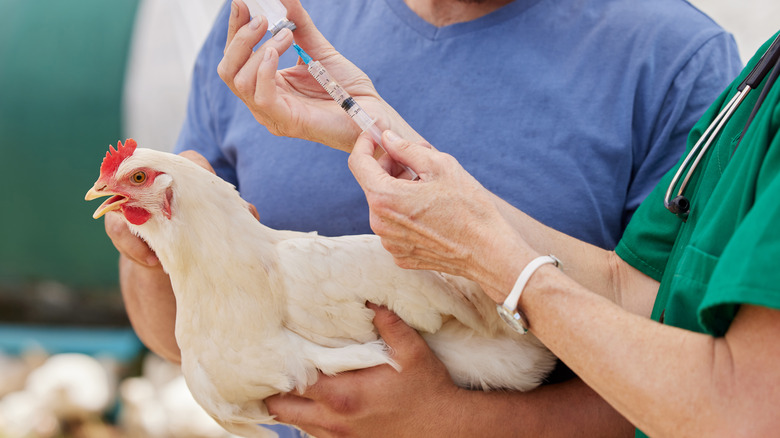Why Bird Flu Vaccinations Might Not Fly With The Chicken Industry
The most recent avian influenza outbreak, typically referred to as "bird flu," led to the worldwide deaths of at least 200 million birds in 2022 alone, according to Reuters, and the highly contagious disease still rages. Poultry vaccinations may be a viable solution, but pushback from segments of the poultry industry is stalling implantation — at least in the United States.
Some birds succumb to the disease itself, which is caused by a strain of the H5N1 virus, while others fall prey to mass flock culling in an effort to reduce or control the spread of the deadly illness. To be effective, culling occurs in both healthy and infected flocks, leading to massive economic and livelihood impacts on farmers, as well as significantly higher consumer prices for eggs and poultry products.
Wild birds can also be affected by bird flu circulation, potentially affecting the biodiversity of ecosystems and the crossing of species barriers to infect mammals, explains the World Organization for Animal Health (WOAH). Cases have already been confirmed in bears, foxes, and raccoons, potentially through feeding on infected birds. And a farm in Spain reported a significant outbreak of bird flu amongst minks in 2022. Though minimal to date, bird flu, if not contained, could become endemic and infect humans, creating a global public health risk. So, what's the holdup on U.S. avian influenza vaccinations? It centers on economic concerns, ones that stretch far beyond American shores.
Poultry vaccinations could affect international trade
Economic impacts of avian influenza at home in the U.S., including lost jobs, skyrocketing consumer prices, and farmer devastation, would assumably create support for mass poultry vaccination programs. But it's not that simple. Many countries ban vaccinated birds due to the potential of infected birds slipping through the cracks and spreading the virus in their populations. Even vaccinated chickens could still carry the virus, which replicates quickly in enclosed group environments.
Poultry trade organizations fear that vaccinating chickens could significantly impact exports, spur trade bans, and devastate the $6 billion poultry export industry. Vaccinating millions of chickens against bird flu would also be a huge and costly undertaking, and some believe it would fail to alleviate other mitigation needs, including flock reduction. The U.S. Department of Agriculture (USDA) told Reuters that "The use of a vaccine at this time would have detrimental impacts on poultry trade while still necessitating response activities such as quarantine, depopulation, and surveillance testing."
Nonetheless, consensus on the need for intervention is spurring debate over poultry vaccinations and leading some countries to move forward with the practice. Mexico unrolled emergency vaccinations in 2022. The European Union will adhere to upcoming poultry vaccination rules to ensure free and safe trade within its bloc of 27 member states. China, on the other hand, issued mandatory vaccinations for the H7N9 strain of avian influenza years ago. In doing so, it reportedly wiped out human infections and enabled a return to chicken farming (via Science).

